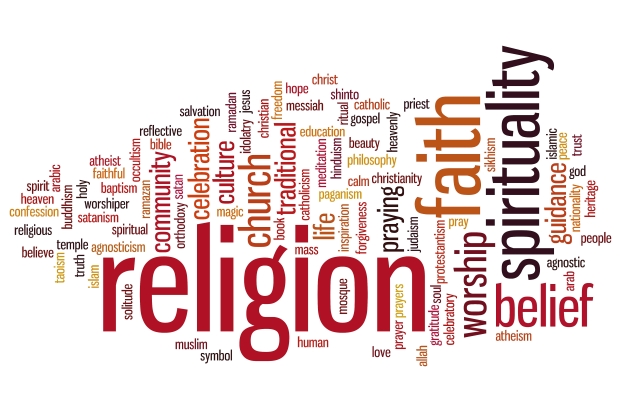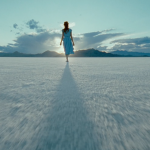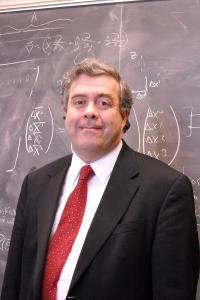Speak what we feel, not what we ought to say. –Shakespeare
This past Easter Friday the University of British Columbia Symphony Orchestra, together with two university choirs, performed Gustav Mahler’s Symphony No. 2, usually called the Resurrection Symphony. An immense work of music, clocking in at almost an hour and a half, it is about death, the meaning of suffering and ultimately—as the title suggests—the hope of the resurrection.
Jonathan Girard, the director of the UBC symphony, likes talking to his audience before and between pieces. For this concert, he invited a Mahler scholar to help introduce the symphony and to suggest what we might pay attention to. Although his guest had many interesting and learned insights, there was a hole in her talk big enough to drop a cow through. Not once did she mention religion. The closest she came was to refer to the ‘philosophical questions’ that the piece raises. Now, this is a very suitable way of describing man’s fascination with death and his yearning for something beyond. Socrates, for instance, taught that true philosophy is a preparation for dying. But in a symphony that is explicitly about religious questions, and specifically refers to the Christian doctrine of the resurrection of the dead, omitting to mention its religious aspects is a very curious thing—particularly when the piece was performed during the Octave of Easter!
For context, here is a translation of the text from Klopstock’s poem Die Auferstehung (‘The Resurrection’) that is sung in the final movement:
Arise, yes, you will arise from the dead,
My dust, after a short rest!
Eternal life!
Will be given you by Him who called you.To bloom again are you sown.
The Lord of the harvest goes
And gathers the sheaves,
Us who have died.
To these verses, Mahler adds his own words. Here are the first few lines:
O believe, my heart, oh believe,
Nothing will be lost to you!
Everything is yours that you have desired,
Yours, what you have loved, what you have struggled for.
And the lyrics conclude:
Arise, yes, you will arise from the dead,
My heart, in an instant!
What you have conquered
Will bear you to God.
Given such words, why was there complete silence in the pre-concert lecture about the religious theme that is the focus of the entire work of art? I ask this question with a baldness that is somewhat tongue in cheek because we all know the answer: religion does not make for polite conversation in our culture. Hence, we can have the absurd situation where an entire concert hall is transfixed by a profound meditation on the most fundamental of human, existential yearnings, while at the same time, good manners and the fear of social awkwardness does not permit a scholar at the same event to mention the name of Christ.
One might be tempted to appeal to the need to respect the inevitably diverse beliefs of the audience. But this seems rather far-fetched to me. To begin with, Mahler’s own religion was complex. He came from a Jewish family but he converted to the Catholic faith as an adult; some infer that this was essentially a socially motivated decision so that he could secure better employment. He has been described as an agnostic; he himself once commented that he never wrote a Mass setting because he was uncomfortable with the Creed. Nevertheless, he wrote this piece of music that embraces hope in the resurrection of the dead. Given all of this, it is certainly not a propaganda piece for religious orthodoxy, nor is it an attempt to beat the audience over the head with a trite message. But it is, in its very bones, a meditation on the questions that surely everyone in the audience, regardless of his creed, has asked. What are we to make of the apparent absurdity of death? Is there a God, and if so, will he save us from death? Do the deceased exist simply in bittersweet memories, or is there more beyond the grave? It seems to me that there should be public space to, at the very least, mention such questions aloud.

British Columbia known for being a very secular province—traditionally the least religious in the country. But this sort of phenomenon is not confined to the west coast of Canada. As I was walking home, I recalled the time, a couple of years ago in Toronto, that I was introduced to one of the colleagues that I went to the concert with. She listened with interest to my career as a Jesuit, and then, after some small talk, spontaneously shared with me what she believed in about God and life after death. Later, she said she pointed out that, while I was happy to explain my own faith, I had not asked her at all about hers: she had to volunteer it, which is a rather rare thing. And the truth of the matter is that I did not think it ‘polite’ to ask her such a question; I was, like the Mahler scholar, too nice to initiate a conversation on a topic that is socially taboo in the West.
On the day after the concert, Easter Saturday, the first reading at mass was about Peter and John appearing before the Sanhedrin after healing a lame man in the temple. After being admonished to stop preaching in the name of Jesus, Peter and John respond:
Which is right in God’s eyes: to listen to you, or to him? You be the judges! As for us, we cannot help speaking about what we have seen and heard. (Acts 4:19–20)
In a sense, there is a nod to our culture here, for Peter and John do leave it up to the elders to decide for themselves what they shall believe: ‘You be the judges!’ Like Mahler’s symphony, they propose something to their audience; and like a symphony, they have no power ultimately to coerce their audience. But at the same time, they are not shy about saying what they believe. St. John Paul II expressed the importance of this balance as follows:
On her part the Church addresses people with full respect for their freedom. Her mission does not restrict freedom but rather promotes it. The Church proposes; she imposes nothing. She respects individuals and cultures, and she honours the sanctuary of conscience. To those who for various reasons oppose missionary activity, the Church repeats: Open the doors to Christ!
We in our time need to find the boldness to talk about religion in this spirit: to be open to talking about God, death, resurrection, the life of the spirit, and so on. It won’t hurt anyone if we are mindful that proposing something is not the same as imposing it. And it might even enliven a night out at the symphony at a secular university in British Columbia.












